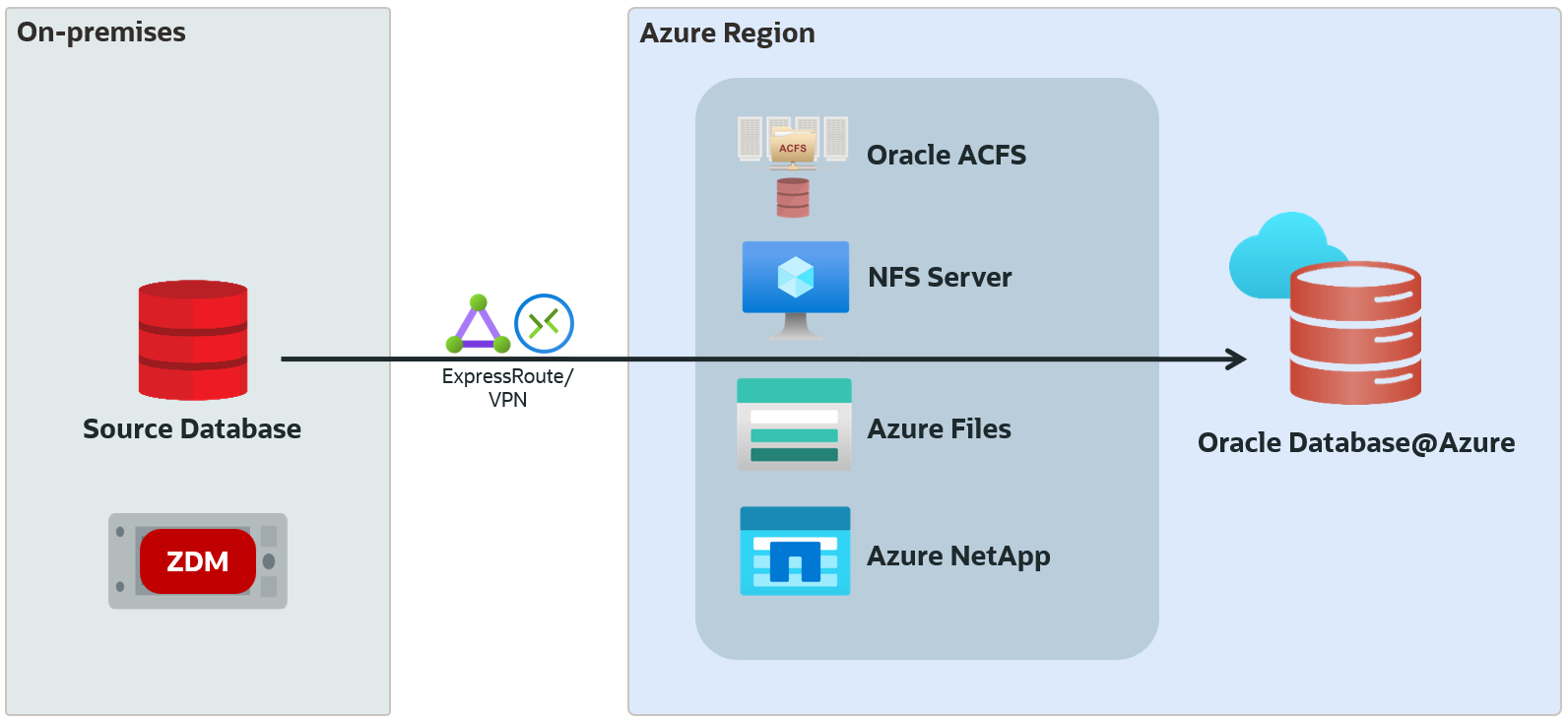
Oracle Zero Downtime Migration (ZDM) is a free-of-charge migration solution trusted by customers worldwide. It simplifies and automates Oracle database migrations, including those requiring minimal downtime. Following Oracle Maximum Availability Architecture (MAA) best practices, ZDM provides pre-validation and controllable automation for a single database or database fleet migrations to Oracle Database@Azure.
Oracle ZDM supports Oracle database migrations to Oracle Exadata Database Service on Dedicated Infrastructure and Oracle Autonomous Database Serverless on Oracle Database@Azure. While the Physical Online migration workflow utilizing Oracle Data Guard and direct data transfer does not require any intermediate storage location, the Physical Offline, Logical Offline, and Logical Online migration workflows require a storage location to store the RMAN backup and Data Pump dump files.
This blog post highlights various NFS storage solutions that can be used with Oracle ZDM to migrate to Oracle Database@Azure through the Azure Network.
Option 1: Oracle ACFS
Oracle Advanced Cluster File System (Oracle ACFS) is a multi-platform, scalable file system, and storage management technology that extends Oracle Automatic Storage Management (Oracle ASM) functionality to support all customer files.
Oracle ACFS can be used as an NFS storage location for Oracle ZDM migrations to Oracle Exadata Database Service on Dedicated Infrastructure on Oracle Database@Azure. This is achieved by leveraging Oracle ACFS’s NAS-MAX HA Extensions, which allow customers to export HA-NFS on top of an ACFS file system.
This solution does not require an Azure Firewall or a Network Virtual Appliance (NVA) unless you have a requirement to inspect the network traffic between on-premises and Azure networks.
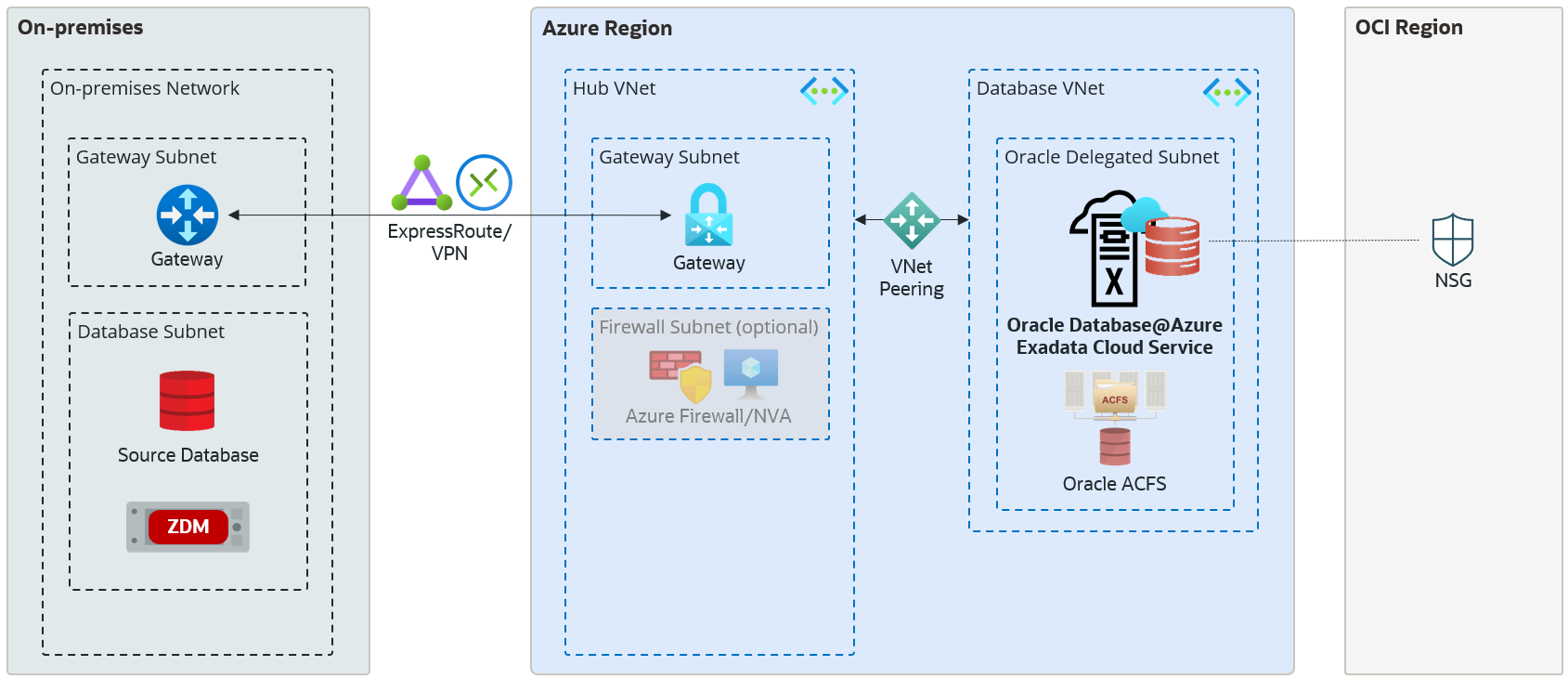
Learn more: Overview of Oracle ACFS
Option 2: NFS Server on Azure VM
You can install an NFS Server on an Azure VM and mount the NFS share on-premises and on Oracle Database@Azure.
This solution does not require an Azure Firewall or a Network Virtual Appliance (NVA), unless you have a requirement to inspect the network traffic between on-premises and Azure networks.
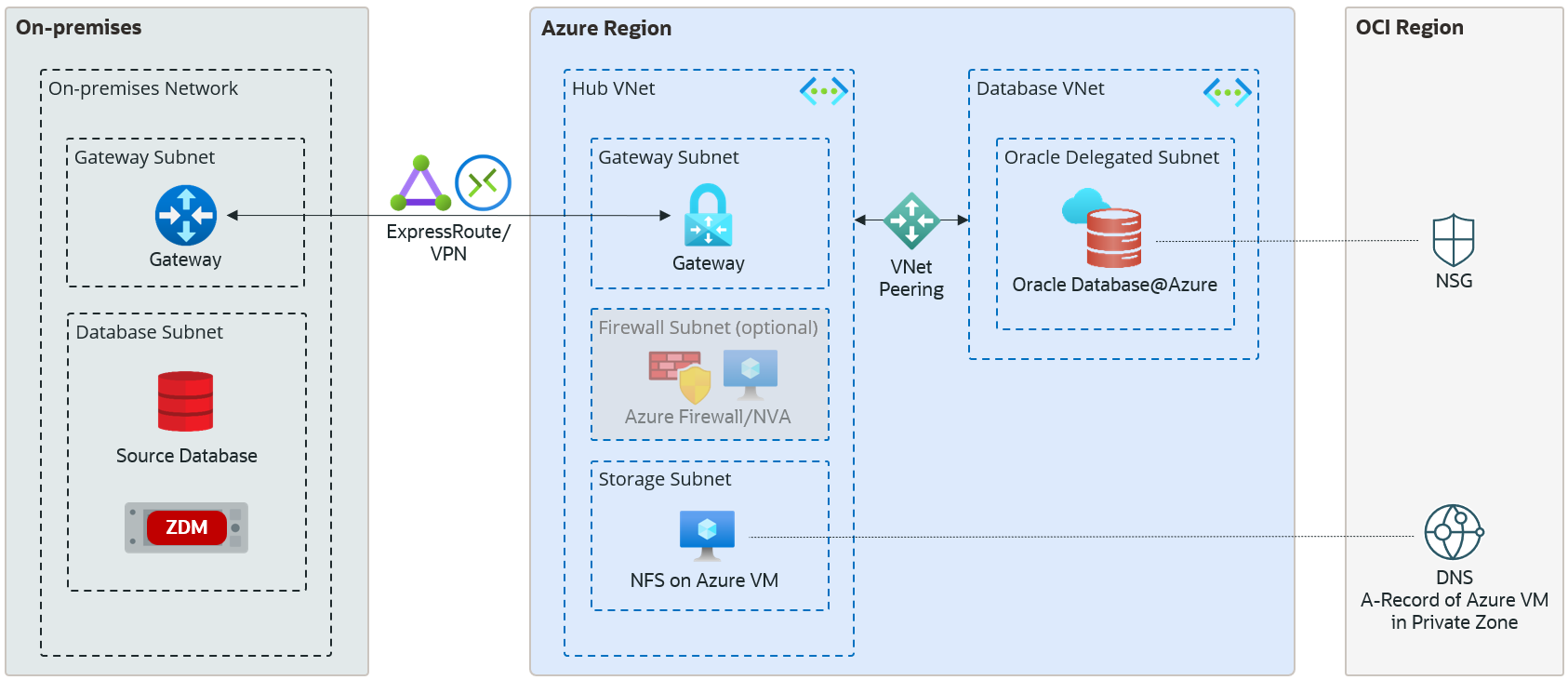
Learn more: Azure Network File System Overview
Option 3: NFS Azure File Shares
Azure Files provides a managed service for NFS file shares that can be mounted on-premises and on Oracle Database@Azure.
The storage account private endpoint can be in the hub VNet that is peered to the database VNet. In this case, an Azure Firewall or any other Network Virtual Appliance (NVA) must route the traffic from on-premises and Oracle delegated subnet for Oracle Database@Azure to the private endpoint.
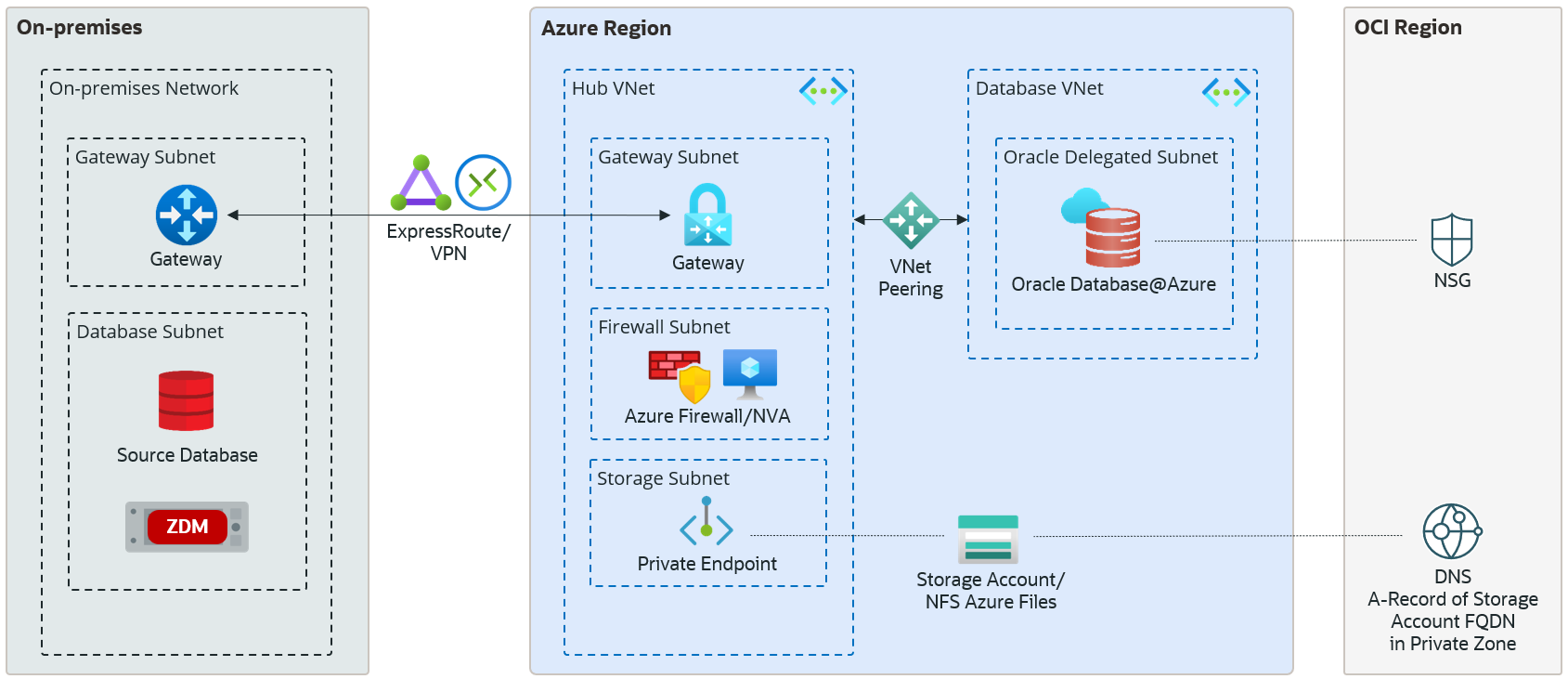
Alternatively, the storage account private endpoint can be in a separate spoke VNet that is peered to the hub VNet. The storage VNet should not be peered to the database VNet, as the network traffic still must be routed via an Azure Firewall or a Network Virtual Appliance (NVA).
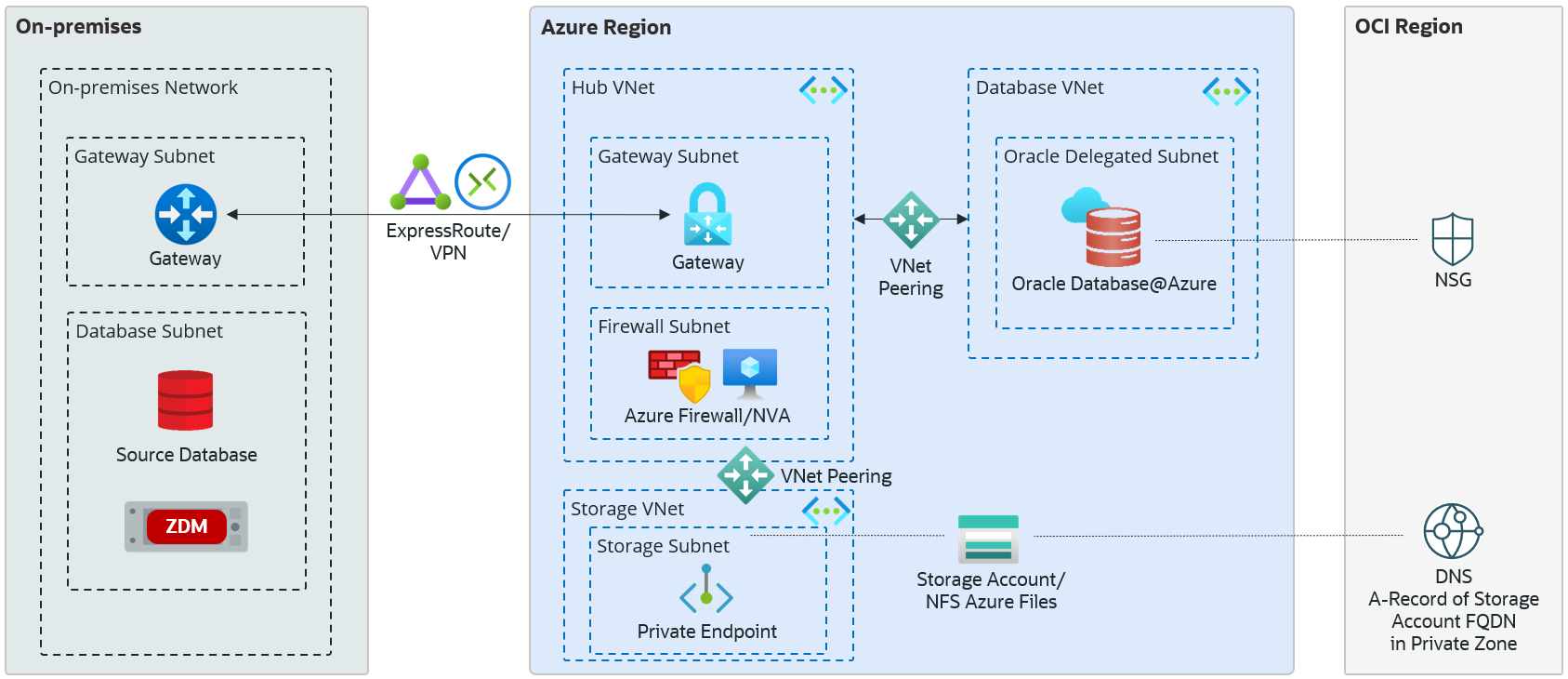
Learn more: NFS Azure File Shares
Option 4: Azure NetApp Files
Azure NetApp Files provides a shared file-storage service that can be used to share files between the on-premises database and Oracle Database@Azure.
The NetApp delegated subnet can be located in the same VNet as the Oracle delegated subnet.
This solution does not require an Azure Firewall or a Network Virtual Appliance (NVA) unless you need to inspect the network traffic between on-premises and Azure networks.
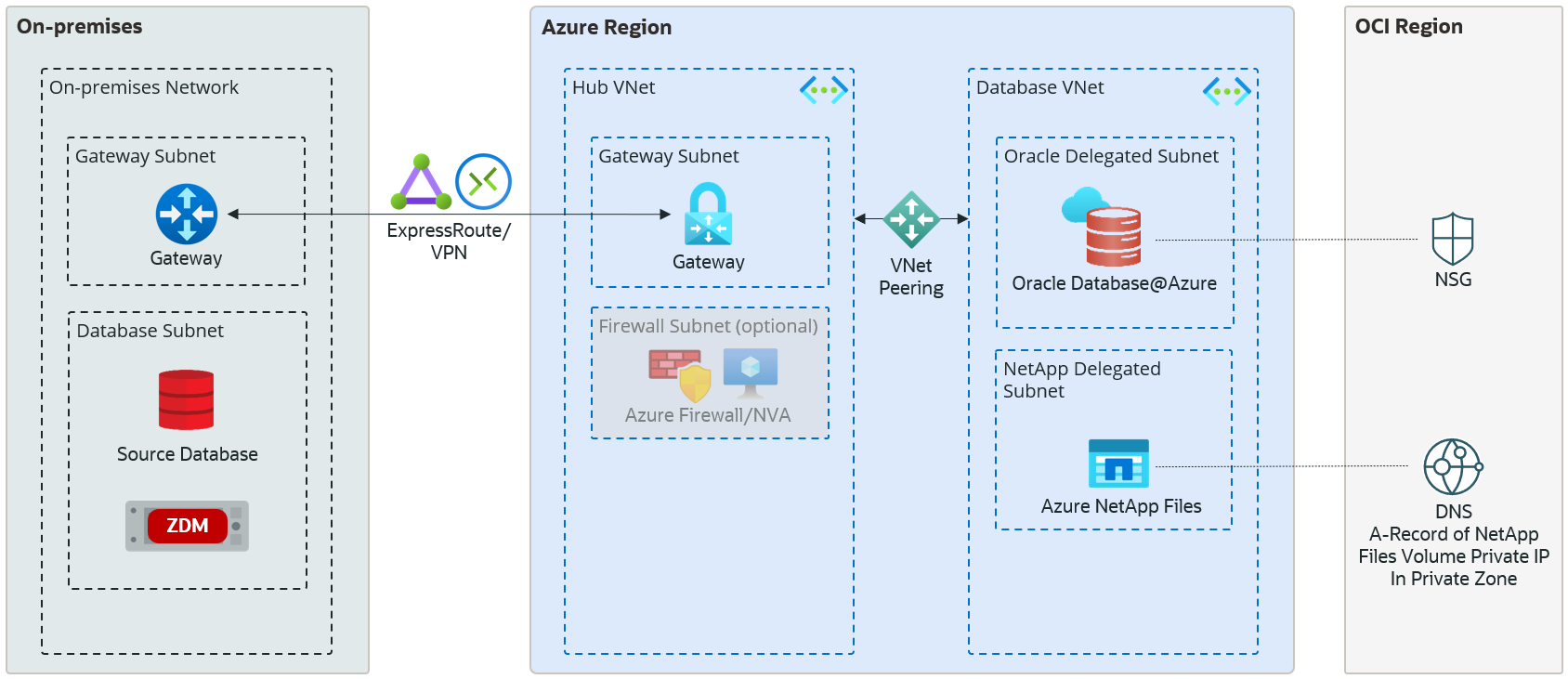
Alternatively, the NetApp delegated subnet can be deployed in the hub VNet. In this case, an Azure Firewall or a Network Virtual Appliance (NVA) is not required unless you have a requirement to inspect the network traffic between on-premises and Azure networks.
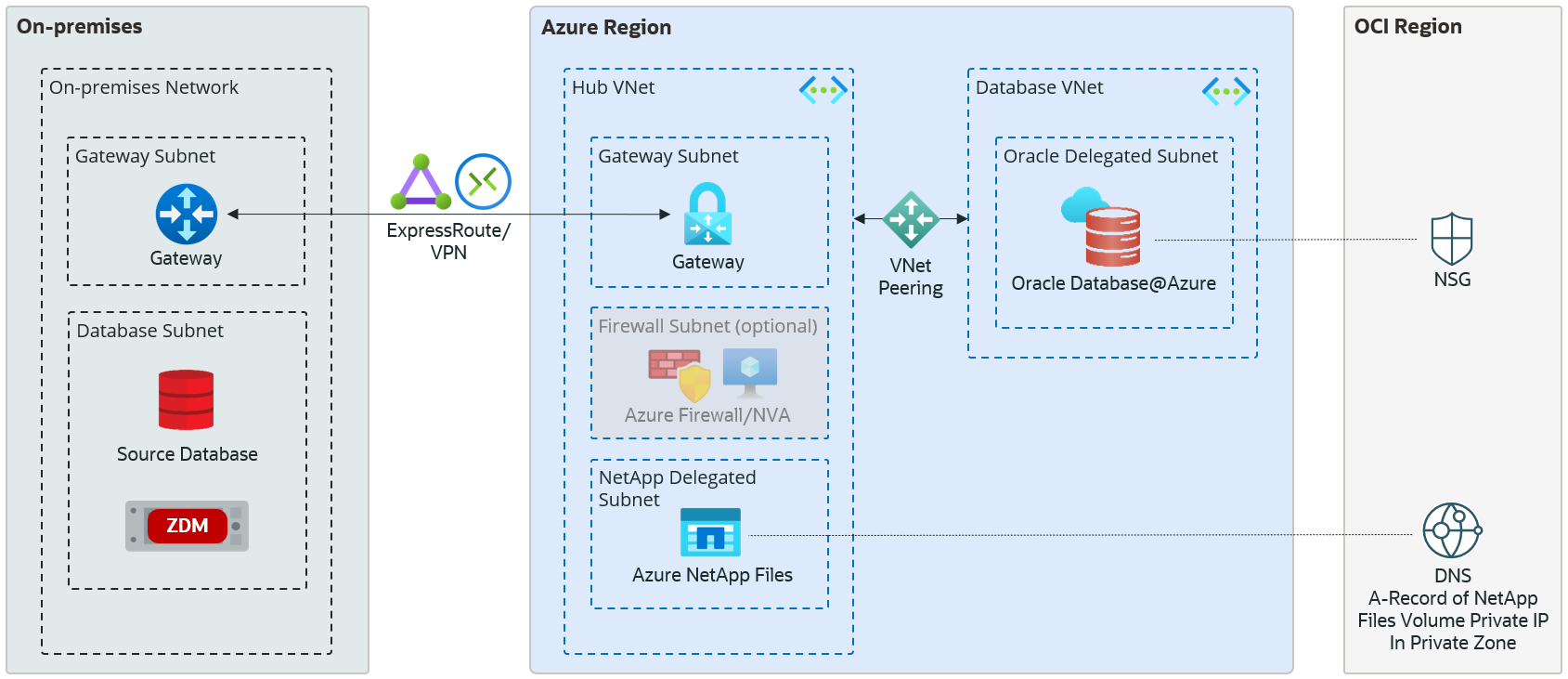
Additionally, the NetApp delegated subnet can be in a separate spoke VNet. In this case, Oracle Database@Azure accesses the file share directly without needing an Azure Firewall or a Network Virtual Appliance (NVA). However, an Azure Firewall or a Network Virtual Appliance (NVA) is required for on-premises resources to access the NetApp file share.
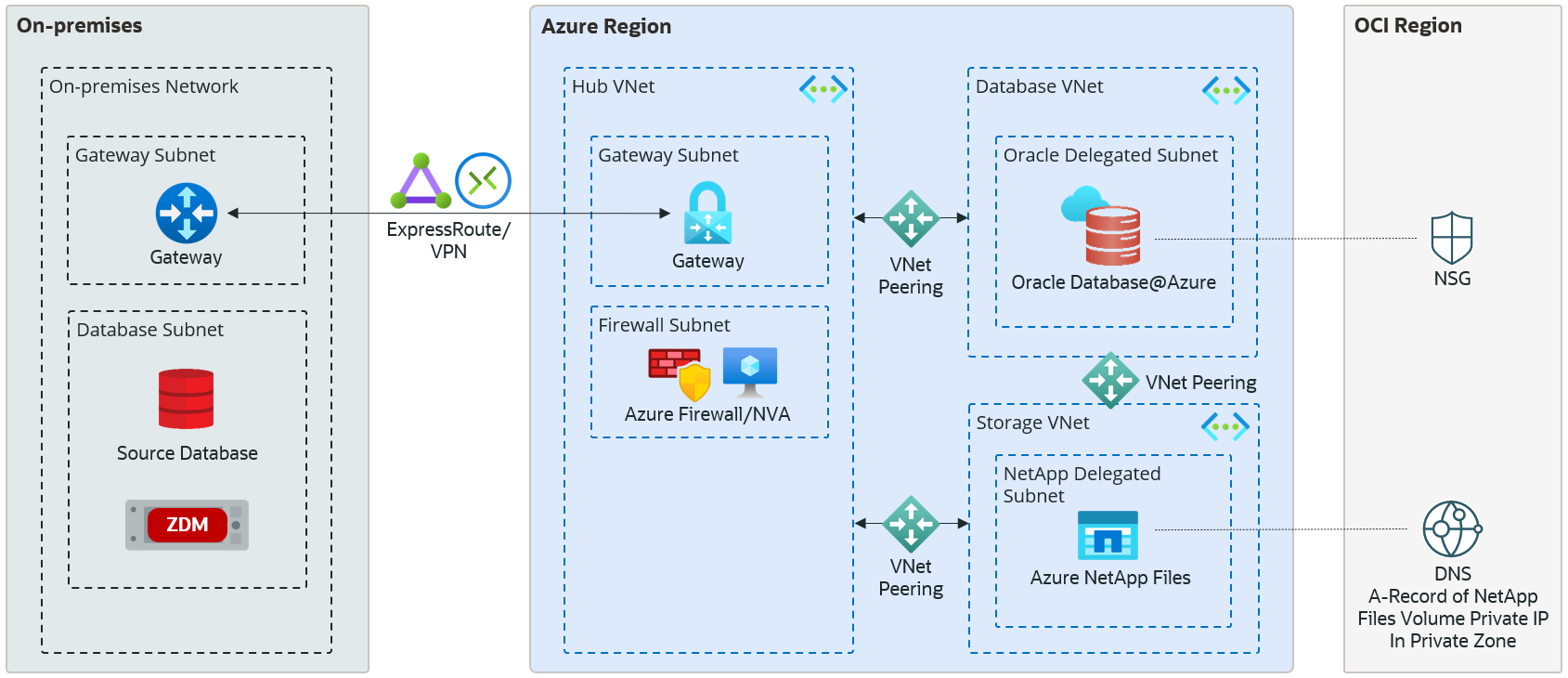
Learn more: Azure NetApp Files
Considerations
- The Network Security Group (NSG) in OCI must be edited to allow traffic from on-premises and other Azure VNets requiring connectivity to Oracle Database@Azure.
- For Oracle Exadata Database Service on Dedicated Infrastructure, if you are using the private IP of the NFS solution to mount the NFS share on the Exadata VMs, the A-Record in the OCI Private DNS Zone is not required.
- Oracle Autonomous Database Serverless does not allow the usage of IP addresses to mount NFS shares. Therefore, an A-Record in the OCI Private DNS Zone must resolve the private IP address to the fully qualified domain name (FQDN) of the NFS service.
- For Azure NetApp Files, deploy a performance tier that aligns with your workload performance requirements.
Summary
Oracle Zero Downtime Migration (ZDM) supports Oracle database migrations to Oracle Exadata Database Service on Dedicated Infrastructure and Oracle Autonomous Database Serverless on Oracle Database@Azure.
Various ZDM migration scenarios require an intermediate storage location to store the RMAN backup and Data Pump dump files. This storage location can be provided by using Oracle ACFS, installing an NFS Server on an Azure VM, or using managed services like Azure Files and Azure NetApp.
Read More
- Oracle Database@Azure product page
- Step-by-Step Guides – Oracle ZDM product page
- Oracle ZDM Migration to Autonomous Database on Oracle Database@Azure
- Overview of Oracle ZDM Migration Workflows to Exadata Database Service on Oracle Database@Azure
- Network topology and connectivity for Oracle Database@Azure – Migration connectivity design


